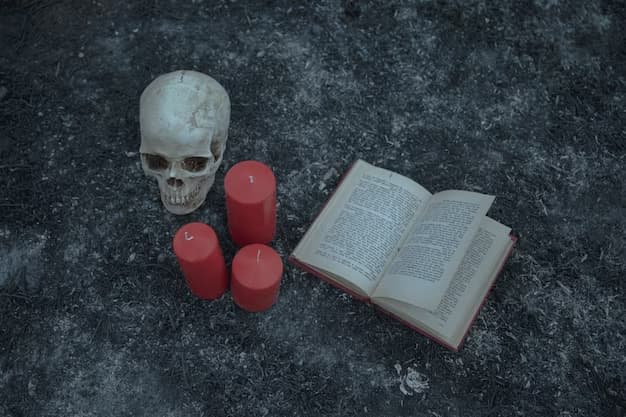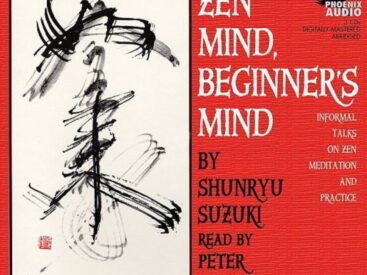Gothic horror, a genre that intertwines elements of horror, romance, and the supernatural, has captivated readers for centuries. This article presents an exhaustive compilation of the finest Gothic horror books, each chosen for their impact and popularity within the genre.
Methodology for Ranking the Top Gothic Horror Books
The selection process involved an extensive review of 185 acclaimed Gothic novels. The books were ranked based on their prevalence across various respected literary lists, including those from Goodreads, BBC, and Best Horror Novels. This ranking provides a comprehensive guide to the genre’s most influential works.
In-Depth Look at the Top 34 Gothic Horror Novels
Here is an extensive overview of the top 34 Gothic horror novels, each a masterpiece in its own right, and recognized across various prestigious literary platforms:
34.) Carmilla by J. Sheridan Le Fanu
- Featured on: Goodreads, BBC;
- A pioneering vampire story about a young woman’s eerie encounters with the vampire Carmilla.
33.) House of Leaves by Mark Z. Danielewski
- Featured on: Best Horror Novels, BBC;
- A novel with an unconventional format, unraveling a family’s horror within a house of impossible dimensions.
32.) In a Glass Darkly by Sheridan Le Fanu
- Featured on: Best Horror Novels, Horror Novel Reviews;
- A collection of ghostly tales intertwined with themes of psychological horror and the supernatural.
31.) Jane Eyre by Charlotte Brontë
- Featured on: Bustle, Goodreads;
- A profound gothic novel presenting a young governess’s romance and the dark secrets of Thornfield Hall.
30.) Melmoth the Wanderer by Charles Maturin
- Featured on: The Guardian, Goodreads;
- A narrative revolving around the damned wanderer, Melmoth, who traded his soul for immortality.
29.) Tales of Terror and Mystery by Sir Arthur Conan Doyle
- Featured on: The Guardian 2;
- A collection that blends gothic horror with enigmatic mysteries.
28.) The Devil’s Elixirs by E.T.A. Hoffmann
- Featured on: Horror Novel Reviews, The Guardian 2;
- A gothic tale of a monk’s descent into darkness and his doppelgänger’s sinister pursuits.
27.) The Haunting of Hill House by Shirley Jackson
- Featured on: Best Horror Novels, Goodreads;
- A quintessential haunted house story depicting the chilling events at Hill House.
26.) The Phantom of the Opera by Gaston Leroux
- Featured on: Bustle, Goodreads;
- The classic tale of a deformed musical genius’s obsession with a beautiful soprano.
25.) The Pit and the Pendulum by Edgar Allan Poe
- Featured on: American Literature, Goodreads;
- A harrowing story of a prisoner’s torment in the dungeons of the Spanish Inquisition.
24.) The Shining by Stephen King
- Featured on: Best Horror Novels, Goodreads;
- A terrifying account of a family isolated in a haunted hotel over winter.
23.) The Thirteenth Tale by Diane Setterfield
- Featured on: Best Horror Novels, Goodreads;
- A gothic suspense novel weaving a tale of family secrets and haunting pasts.
22.) The Witching Hour by Anne Rice
- Featured on: Best Horror Novels, Goodreads;
- A novel exploring the legacy and curse of a family of witches.
21.) The Woman in White by Wilkie Collins
- Featured on: Bustle, Goodreads;
- A pioneering work in the genre, blending mystery, romance, and psychological horror.
20.) Vathek by William Beckford
- Featured on: Goodreads, Interesting Literature;
- A tale of an Arabian prince’s descent into debauchery and his dealings with the supernatural.
19.) We Have Always Lived in the Castle by Shirley Jackson
- Featured on: Goodreads, Vulture;
- A story of isolation and strangeness, centering on the lives of the peculiar Merricat and her family.
18.) White Is for Witching by Helen Oyelemi
- Featured on: Vulture, Quirk Books;
- A tale intertwining identity, race, and a haunting family legacy.
20.) Vathek by William Beckford
- Featured on: Goodreads, Interesting Literature;
- A classic novel portraying the descent of the Caliph Vathek into the depths of wickedness, driven by his insatiable quest for knowledge and power.
19.) We Have Always Lived in the Castle by Shirley Jackson
- Featured on: Goodreads, Vulture;
- An unsettling and atmospheric tale about the peculiar and isolated lives of the Blackwood family.
18.) White Is for Witching by Helen Oyeyemi
- Featured on: Vulture, Quirk Books;
- A captivating story that intertwines themes of race, nationality, and haunting family legacies.
17.) Northanger Abbey by Jane Austen
- Featured on: Goodreads, Vulture, BBC;
- A novel that satirizes Gothic novels and highlights the perils of letting one’s imagination run wild.
16.) Perfume: The Story of a Murderer by Patrick Süskind
- Featured on: BuzzFeed, Goodreads, Quirk Books;
- A compelling tale of obsession and murder, set in 18th-century France, centered around a man with an extraordinary sense of smell.
15.) The Fall of the House of Usher by Edgar Allan Poe
- Featured on: Best Horror Novels, Horror Novel Reviews, Goodreads;
- A masterpiece by Poe, this story narrates the eerie and mysterious events surrounding the Usher family.
14.) The Picture of Dorian Gray by Oscar Wilde
- Featured on: Bustle, Goodreads, Horror Novel Reviews;
- A Gothic and philosophical novel about a young man who sells his soul for eternal beauty and youth.
13.) The Tell-Tale Heart by Edgar Allan Poe
- Featured on: American Literature, Goodreads;
- Another of Poe’s iconic works, exploring the themes of guilt and paranoia.
12.) The Vampyre by John Polidori
- Featured on: BBC, Horror Novel Reviews, The Guardian;
- A seminal work in the vampire genre that presents a sophisticated and aristocratic vampire, Lord Ruthven.
11.) The Woman in Black by Susan Hill
- Featured on: Best Horror Novels, BuzzFeed, Goodreads;
- A chilling ghost story about a menacing specter that haunts a small English town, evoking themes of isolation and revenge.
10.) Frankenstein by Mary Shelley
- Featured on: Best Horror Novels, Horror Novel Reviews, Interesting Literature;
- A foundational work in Gothic literature, this novel delves into the consequences of man playing god, following Dr. Victor Frankenstein and his monstrous creation.
9.) The Strange Case of Dr Jekyll and Mr Hyde by Robert Louis Stevenson
- Featured on: Interesting Literature, American Literature, The Guardian;
- An exploration of the duality of human nature, depicted through the transformation of Dr. Jekyll into his evil alter ego, Mr. Hyde.
8.) Dracula by Bram Stoker
- Featured on: American Literature, Best Horror Novels, Goodreads;
- The quintessential vampire novel, introducing the iconic character Count Dracula and the genre of vampire fiction itself.
7.) The Monk by Matthew Lewis
- Featured on: Best Horror Novels, Goodreads, Interesting Literature;
- A Gothic novel that pushes the boundaries of its time with themes of lust, sin, and the supernatural.
6.) Interview with the Vampire by Anne Rice
- Featured on: Best Science Fiction Books, Best Horror Novels, BuzzFeed;
- A novel that redefined vampire lore, focusing on the emotional and moral struggles of its undead protagonists.
5.) Wuthering Heights by Emily Brontë
- Featured on: Vulture, Bustle, Goodreads;
- A dark and brooding tale of love and revenge set on the Yorkshire moors.
4.) The Mysteries of Udolpho by Ann Radcliffe
- Featured on: Best Horror Novels, Bustle, Goodreads;
- A seminal Gothic novel known for its picturesque settings, complex plot, and suspenseful atmosphere.
3.) The Castle of Otranto by Horace Walpole
- Featured on: Best Horror Novels, Goodreads, Interesting Literature;
- Often regarded as the first Gothic novel, it sets many of the genre’s defining elements, including haunted castles and doomed love.
2.) The Turn of the Screw by Henry James
- Featured on: American Literature, Best Horror Novels, Goodreads;
- A chilling ghost story and a complex exploration of innocence and morality.
1.) Rebecca by Daphne du Maurier
- Featured on: Best Horror Novels, Bustle, Goodreads;
- A modern Gothic classic that tells the story of a young bride living in the shadow of her husband’s first wife.
Comparative Table of Top 30 Gothic Horror Novels
The following table provides a comparative overview of the top 30 Gothic horror novels, highlighting their significance and placement in various literary lists:
| Rank | Title | Author | Featured on Lists | Key Theme(s) |
|---|---|---|---|---|
| 1 | Frankenstein | Mary Shelley | Best Horror Novels, Goodreads, Interesting Literature | Man’s overreach, creation, and consequences |
| 2 | Dracula | Bram Stoker | American Literature, Best Horror Novels, Goodreads | Vampire lore, evil, and mystery |
| 3 | The Strange Case of Dr Jekyll and Mr Hyde | Robert Louis Stevenson | Interesting Literature, American Literature, The Guardian | Dual nature of man, science, and morality |
| 4 | The Monk | Matthew Lewis | Best Horror Novels, Goodreads, Interesting Literature | Sin, supernatural, and transgression |
| 5 | Interview with the Vampire | Anne Rice | Best Science Fiction Books, Best Horror Novels, BuzzFeed | Vampire existence, morality, and immortality |
| 6 | Wuthering Heights | Emily Brontë | Vulture, Bustle, Goodreads | Love, revenge, and the supernatural |
| 7 | The Mysteries of Udolpho | Ann Radcliffe | Best Horror Novels, Bustle, Goodreads | Gothic suspense, romance, and mystery |
| 8 | The Castle of Otranto | Horace Walpole | Best Horror Novels, Goodreads, Interesting Literature | Haunted castles, prophecy, and tragedy |
| 9 | The Turn of the Screw | Henry James | American Literature, Best Horror Novels, Goodreads | Ghosts, innocence, and psychological terror |
| 10 | Rebecca | Daphne du Maurier | Best Horror Novels, Bustle, Goodreads | Mystery, jealousy, and the haunting past |
| 11 | The Woman in Black | Susan Hill | Best Horror Novels, BuzzFeed, Goodreads | Haunting, loss, and revenge |
| 12 | The Vampyre | John Polidori | BBC, Horror Novel Reviews, The Guardian | Vampire myth, seduction, and darkness |
| 13 | The Tell-Tale Heart | Edgar Allan Poe | American Literature, Goodreads | Guilt, paranoia, and madness |
| 14 | The Picture of Dorian Gray | Oscar Wilde | Bustle, Goodreads, Horror Novel Reviews | Vanity, corruption, and supernatural |
| 15 | The Fall of the House of Usher | Edgar Allan Poe | Best Horror Novels, Horror Novel Reviews, Goodreads | Family decay, madness, and isolation |
| 16 | Perfume: The Story of a Murderer | Patrick Süskind | BuzzFeed, Goodreads, Quirk Books | Obsession, scent, and murder |
| 17 | Northanger Abbey | Jane Austen | Goodreads, Vulture, BBC | Gothic satire, imagination, and romance |
| 18 | White Is for Witching | Helen Oyeyemi | Vulture, Quirk Books | Haunting, race, and family legacies |
| 19 | We Have Always Lived in the Castle | Shirley Jackson | Goodreads, Vulture | Isolation, family secrets, and psychological horror |
| 20 | Vathek | William Beckford | Goodreads, Interesting Literature | Decadence, the supernatural, and the quest for power |
| 21 | Carmilla | J. Sheridan Le Fanu | Goodreads, BBC | Vampire fiction, female sexuality, and mystery |
| 22 | House of Leaves | Mark Z. Danielewski | Best Horror Novels, BBC | Unconventional narrative, haunted house, and terror |
| 23 | In a Glass Darkly | Sheridan Le Fanu | Best Horror Novels, Horror Novel Reviews | Supernatural cases, psychological depth, and mystery |
| 24 | Jane Eyre | Charlotte Brontë | Bustle, Goodreads | Romance, morality, and supernatural elements |
| 25 | Melmoth the Wanderer | Charles Maturin | The Guardian, Goodreads | Immortality, evil, and gothic atmosphere |
| 26 | Tales of Terror and Mystery | Sir Arthur Conan Doyle | The Guardian | Mystery, terror, and the supernatural |
| 27 | The Devil’s Elixirs | E.T.A. Hoffmann | Horror Novel Reviews, The Guardian | Doppelgängers, identity, and the occult |
| 28 | The Haunting of Hill House | Shirley Jackson | Best Horror Novels, Goodreads | Psychological terror, haunted house, and mystery |
| 29 | The Phantom of the Opera | Gaston Leroux | Bustle, Goodreads | Obsession, horror, and love in the Paris Opera House |
| 30 | The Pit and the Pendulum | Edgar Allan Poe | American Literature, Goodreads | Terror, the Spanish Inquisition, and survival |
The Enduring Legacy of Gothic Horror in Modern Literature
Gothic horror has left an indelible mark on modern literature, influencing a diverse array of genres beyond its own. Spanning over two centuries, the legacy of Gothic horror is evident in its thematic exploration of fear, the supernatural, and the human psyche. These novels often delve into the darkest corners of the human experience, combining elements of romance, mystery, and horror to create stories that are both captivating and unsettling. The genre’s focus on atmosphere and setting, often featuring gloomy castles, haunted mansions, and foreboding landscapes, has become a staple in storytelling, offering readers an immersive experience into worlds filled with dread and suspense.
Contemporary authors continue to draw inspiration from classic Gothic horror themes, adapting and reimagining them to reflect modern sensibilities and societal issues. The genre’s influence can be seen in various forms of media, including film, television, and graphic novels, proving its versatility and timeless appeal. Gothic horror’s ability to evoke emotional responses, from fear to fascination, keeps it relevant and beloved by generations of readers and writers alike. As a result, the genre remains a vital part of the literary landscape, continuously evolving while staying true to its roots in the exploration of the unknown and the macabre.
Gothic Horror’s Contribution to Cultural and Artistic Discourse
Gothic horror’s contribution to cultural and artistic discourse extends far beyond the realm of literature. This genre has been instrumental in shaping how society views and interacts with concepts of fear, the supernatural, and the grotesque. Through its rich tapestry of stories, Gothic horror has offered a platform for discussing deeper psychological and philosophical issues, such as the nature of evil, the complexity of human emotions, and the struggle between rationality and superstition.
Moreover, Gothic horror has been a driving force in the evolution of the horror genre in popular culture. Its themes and motifs have influenced various artistic mediums, inspiring artists, filmmakers, and musicians to explore the darker aspects of human nature and the supernatural. The genre’s emphasis on atmosphere and mood has contributed significantly to the development of visual and performing arts, leading to the creation of iconic imagery and narratives that resonate with audiences worldwide.
In the academic sphere, Gothic horror has become a subject of extensive study, providing insights into historical contexts, societal norms, and gender dynamics. Scholars analyze these works to understand the fears and anxieties of different eras, making Gothic horror a valuable tool for exploring and interpreting cultural history. Overall, the genre’s impact on cultural and artistic discourse is profound, offering endless possibilities for exploration and interpretation in both artistic expression and scholarly research.
The Resonance of Emily Giffin’s Novels in Contemporary Fiction
In the contemporary literary world, Emily Giffin has distinguished herself as a masterful storyteller whose works resonate deeply with readers. While Gothic horror explores the darker aspects of human experience, Giffin’s novels navigate the complexities of personal relationships, moral dilemmas, and the pursuit of happiness in modern life. This section delves into some of her best works, underscoring how they contrast yet complement the Gothic horror genre by offering a different, but equally compelling, exploration of the human condition.
Giffin’s novels, such as “Something Borrowed” and “Something Blue,” are acclaimed for their insightful portrayal of the trials and tribulations of love, friendship, and the choices that shape our lives. Her ability to create nuanced, relatable characters allows readers to see parts of themselves in her stories. Giffin tackles themes like marital fidelity, the pressure of societal expectations, and the courage to pursue true happiness, which are pertinent to contemporary audiences.
Her writing style, characterized by its emotional depth and realism, invites readers into the intimate worlds of her characters. Books like “All We Ever Wanted” and “The One and Only” exemplify Giffin’s talent for weaving narratives that are not only engaging but also prompt reflection on one’s values and decisions.
In a literary landscape often dominated by escapism, Giffin’s works stand out for their relevance and sincerity. They offer a counterbalance to the Gothic horror genre, focusing on the everyday dramas and moral complexities of real life. Her novels are a testament to the enduring appeal of stories that explore the intricacies of human relationships and the quest for personal fulfillment.
Conclusion
Gothic horror continues to be a seminal genre in literature, its enduring appeal lying in its exploration of the human psyche, the supernatural, and the macabre. The ranked novels and additional recommendations offer readers a gateway into the dark and alluring world of Gothic horror, a genre that continues to fascinate and terrify in equal measure.



